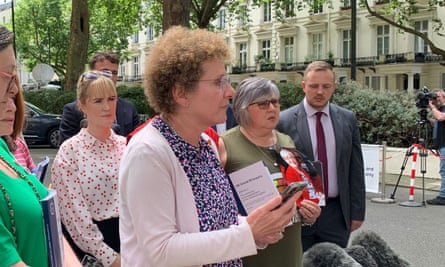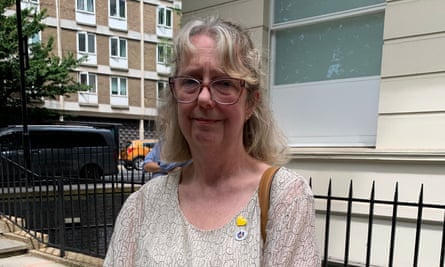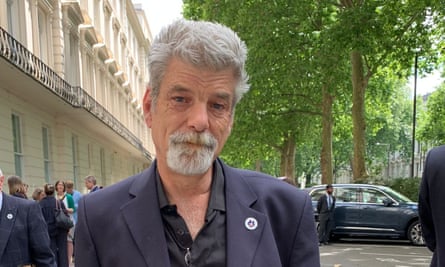Bereaved families hail UK report, noting ‘damning’ analysis of an unprepared Britain
Petra Fleming will turn 54 next year. That is not usually considered a milestone birthday but for her it carries huge emotional significance: it’s the age her brother was when he died of Covid during the pandemic. “In terms of impact it really threw us into family trauma. You can’t hug each other, just FaceTime, it’s very unnatural, very surreal. It’s a very unique situation, which could have been completely avoided with more competent politicians. They failed spectacularly,” she said.
Sharing her story at the publication of the first report from the UK Covid-19 inquiry, she underscored its importance: “I hope other people don’t have to go through the same thing that myself and my family went through, whatever we can do in the future to ensure this doesn’t happen again we will do.”
Fleming is a member of Covid-19 Bereaved Families for Justice UK, and like many others, she has mixed feelings about the report’s content. “It’s a welcome report, but I do think there’s major failings in terms of not holding the previous government to account.”
She said she had felt “very emotional [and] been in tears”, adding: “Lots of people want to forget about Covid, but unfortunately people like me who’ve lost somebody, you can’t forget that easily. Hearing everyone’s stories [during the inquiry’s evidence-gathering sessions] you realise why this inquiry had to be done, because there are people who have suffered enormously, and their families have suffered, and that could have been prevented. If this happens again, and it’s not matter of if it’s when, these recommendations in the report will count in preventing future deaths.”
Her views were echoed by Naomi Fulop, whose mother died during the second wave and who acts as spokesperson for the group. Speaking outside the public inquiry hearing rooms in Paddington, London, Fulop hailed the inquiry for confirming “a fact that is ever-present and all consuming to those of us who have lost loved ones to Covid-19 – the last government failed its citizens”.
She described the report as a “hard-hitting, clear-sighted and damning analysis of how and why the UK found itself to be fatally unprepared” and welcomed recommendations aimed at addressing flawed systems and structures, but suggested that Lady Hallett [chair of the inquiry] “had not gone far enough in setting out how we can challenge, address and improve” health inequalities and public services.

She noted that the word “austerity’” was not mentioned in the report, and felt that Hallett had ducked questions of funding. “I’m sure she wrote it before the election and wonder if it might have been different had she written after, might have taken more risks, used certain words,” Fulop said.
She said she hoped more blame would be apportioned to individual politicians in the second report on high-level decision making, for example Rishi Sunak, who as chancellor brought about the “eat out to help out” scheme in 2020, which she believed contributed to her mother’s death; likewise Boris Johnson, for his failure to attend Cobra meetings.
Covid-19 Bereaved Families for Justice UK is urging the new Labour government to produce a plan to reduce health inequalities and within the first 100 days create a cross-departmental audit for pandemic preparedness, as well as appoint a minister for resilience and preparedness.
after newsletter promotion

Yvonne Friar, from Dartford, whose husband died in April 2020, felt the report was “bittersweet” as well as “important and impactful” in establishing the decisions the government made in the run-up to the pandemic. Saying the report was a “vindication for everything [those affected] had felt over the last four years”, she said: “It was quite clear quite early on we were not prepared and it is really useful today to get Lady Hallett’s report.”
Charles Persinger, from Wiltshire, whose wife, a care-home worker, and mother, both died from Covid within six weeks of each other, felt that the report “only scratched the surface”, not least because people were still dying from Covid.
He noted that the bereaved families, whom he credited with fighting “hard to get the inquiry from the first place”, put in 71 recommendations, but the report had made just 10. “There’s a lot more detail, a lot more questions that may not be covered in the next module, it’s disappointing,” Persinger said. “I think it’s disgraceful, disgusting.”
